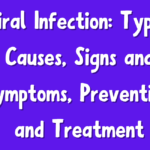Recognizing the Signs: 10 Common Symptoms of Depression and Steps to Take
Depression is a prevalent and serious condition affecting approximately 9.5 percent of the American population each year. It is a complex disorder that impacts daily life and can have destructive effects on families. Controlling the mind and its functions, depression manifests through various symptoms, with severity changing over time.
Experts suggest that depression can be inherited, caused by life-threatening illnesses, stress, certain diseases, medications, drugs, alcohol, or mental illnesses. Recognizing the symptoms is crucial for seeking timely help and implementing positive changes.

Here are 10 common symptoms of depression:
1. Unshakeable Sadness, Anxiety, or Emptiness:
Persistent feelings of profound sadness, anxiety, or a pervasive sense of emptiness are common indicators of depression.
2. Overwhelming Hopelessness:
A sense of overwhelming hopelessness, accompanied by pessimistic feelings about the future, can be a significant symptom.
3. Extreme Guilt and Feelings of Helplessness:
Individuals with depression may experience extreme guilt, feelings of helplessness, and a diminished sense of self-worth.
4. Loss of Energy and Constant Fatigue:
Depression often leads to a loss of energy, a slowdown of metabolism, and persistent fatigue, making day-to-day activities challenging.
5. Helplessness and Difficulty Focusing:
A growing sense of helplessness, coupled with an increasing inability to focus and indecisiveness, is a common manifestation of depression.
6. Sleep Disturbances:
Depression can disrupt sleep patterns, leading to either insomnia or, in some cases, excessive sleeping.
7. Unexplained Weight Changes:
Significant and unexplained weight loss or gain can be triggered by changes in appetite, ranging from loss of interest in food to binge eating.
8. Brooding and Suicidal Thoughts:
Individuals with depression may experience persistent brooding and, in severe cases, thoughts of self-harm or suicide.
9. Irritability and Restlessness:
Increased irritability, a short temper, and restlessness are common emotional symptoms associated with depression.
10. Physical Afflictions:
Physical symptoms such as headaches, digestive disorders, and chronic pain without apparent cause may accompany depression.
If you recognize these symptoms and observe a marked change in behavior, it is essential to consult with a healthcare professional. Seeking help early is crucial for a thorough examination to rule out physical causes and underlying medical issues. Treatment options may include anti-depressant medications, psychotherapy, lifestyle changes, and, in extreme cases, electroconvulsive therapy or light therapy.

Taking control of your mental health involves erasing negativity from your mind, setting goals, practicing relaxation techniques, engaging in enjoyable activities, and surrounding yourself with positive influences. Seek support from friends, family, or mental health professionals, and remember that reaching out is a sign of strength.
If your depression escalates or you are experiencing thoughts of self-harm, seek immediate help from your family physician, healthcare provider, local health department, community mental health center, or hospital. There are resources available to guide you through challenging times.

Additional Information on Depression:
Understanding Depression:
Depression is a multifaceted mental health condition that goes beyond occasional feelings of sadness. It affects the way individuals think, feel, and handle daily activities. Recognizing and addressing the symptoms is crucial for effective management.
Risk Factors:
Several factors may contribute to the development of depression, including genetics, chemical imbalances in the brain, trauma, chronic illnesses, and certain medications. Understanding these risk factors can aid in both prevention and intervention strategies.
Seeking Professional Help:
If you or someone you know is experiencing symptoms of depression, it is important to seek professional help. A healthcare provider can conduct a comprehensive assessment, offer a proper diagnosis, and recommend an appropriate treatment plan.
Treatment Options:
Depression is a treatable condition, and various approaches can be tailored to individual needs. Common treatment options include psychotherapy (counseling), medication, lifestyle changes, and support groups. In some cases, a combination of these approaches may be recommended.

Lifestyle Changes for Mental Health:
Integrating positive lifestyle changes can significantly impact mental well-being. This may include adopting a balanced diet, regular exercise, sufficient sleep, and stress management techniques. Engaging in activities that bring joy and purpose can contribute to overall mental health.
Community Support:
Building a support network is vital for individuals dealing with depression. Friends, family, and community support groups can offer understanding, encouragement, and assistance during challenging times. Establishing open communication about mental health helps reduce stigma and fosters a supportive environment.
Preventive Measures:
While some risk factors for depression are beyond one’s control, adopting preventive measures can contribute to overall mental resilience. These may include developing coping skills, maintaining social connections, and prioritizing self-care.
Educational Resources:
Staying informed about depression and mental health is essential. Educational resources, reputable websites, and mental health organizations provide valuable information, tips, and tools for individuals and their families.
Maintaining Positivity:
Cultivating a positive mindset involves challenging negative thoughts, setting realistic goals, and practicing self-compassion. Techniques such as mindfulness, meditation, and gratitude exercises can contribute to a more positive outlook.
Remember, reaching out for support is a courageous step toward healing. If you or someone you know is struggling with depression, don’t hesitate to contact a mental health professional or a helpline for assistance. Mental health matters and there is help available for those who seek it.
Holistic Approaches and Coping Strategies for Depression:
Mindfulness and Meditation:
Incorporating mindfulness practices and meditation into daily routines can help manage stress and enhance self-awareness. Mindful breathing and meditation techniques are effective tools for calming the mind and promoting emotional well-being.
Physical Exercise and Mental Health:
Regular physical activity is known to have positive effects on mental health. Engaging in exercises like yoga, aerobics, or cardio not only contributes to physical well-being but also releases endorphins, the body’s natural mood boosters.
Nutrition and Depression:
Maintaining a balanced and nutritious diet is essential for overall health, including mental well-being. Certain nutrients, such as omega-3 fatty acids and vitamins, play a role in supporting brain function and may contribute to alleviating depressive symptoms.
Journaling and Self-Reflection:
Keeping a journal to express thoughts and feelings can be a therapeutic outlet. Reflecting on experiences, setting goals, and noting positive aspects of life can foster a sense of control and contribute to emotional resilience.
Connecting with Nature:
Spending time outdoors, connecting with nature, and enjoying sunlight can have positive effects on mood. Nature walks, gardening, or simply spending time in green spaces can provide a sense of peace and tranquility.
Art and Creativity as Therapy:
Engaging in creative activities, such as art, music, or writing, can be a form of self-expression and therapeutic release. Artistic pursuits allow individuals to channel emotions constructively and discover new outlets for personal growth.
Cognitive-Behavioral Therapy (CBT):
CBT is a widely used therapeutic approach for managing depression. This goal-oriented form of psychotherapy helps individuals identify and change negative thought patterns, leading to healthier perspectives and coping strategies.
Setting Realistic Goals:
Breaking down large tasks into smaller, achievable goals can foster a sense of accomplishment. Celebrating small victories contributes to building self-esteem and motivates further progress.
Mind-Body Practices:
Mind-body practices such as tai chi and qigong combine physical movement with mental focus, promoting relaxation and balance. These practices have shown promise in reducing symptoms of depression and enhancing overall well-being.
Support Groups and Social Connections:
Joining support groups or connecting with others who have experienced similar challenges provides a sense of community and understanding. Building and maintaining strong social connections are essential aspects of managing depression.
Remember, the journey toward managing depression is unique for each individual. Combining various holistic approaches and finding what works best for you can contribute to a comprehensive and personalized strategy for coping with and overcoming depression. Always consult with healthcare professionals for personalized advice and treatment options.
Continuing the Conversation on Depression:
Sleep Hygiene and Mental Well-being:
Establishing good sleep hygiene practices is vital for managing depression. Consistent sleep patterns, a comfortable sleep environment, and relaxation techniques before bedtime contribute to better sleep quality, supporting overall mental health.
Technology and Mental Wellness:
Mindful use of technology can positively impact mental wellness. Limiting screen time, especially before bedtime, and incorporating technology-based mental health resources, apps, or online support communities can be beneficial.
Holistic Approaches to Stress Reduction:
In addition to exercise, practices such as deep breathing exercises, progressive muscle relaxation, and biofeedback can effectively reduce stress levels. These techniques promote relaxation and may help alleviate symptoms of depression.
Therapeutic Arts and Expressive Therapies:
Engaging in therapeutic arts, including dance, drama, and music therapy, can be a powerful tools for self-expression and emotional healing. These creative outlets provide alternative ways to communicate and process emotions.
Spirituality and Personal Growth:
For some individuals, exploring spirituality and engaging in activities that promote personal growth can be instrumental in managing depression. This may involve meditation, prayer, or participation in a spiritual community.
Mind-Body Connection:
Recognizing the interconnectedness of mind and body is crucial. Practices like acupuncture, massage therapy, and mindfulness-based stress reduction (MBSR) aim to enhance the mind-body connection, promoting overall well-being.
Professional Guidance for Lifestyle Changes:
Consulting with healthcare professionals, including nutritionists, fitness trainers, and mental health experts, can provide tailored advice on lifestyle changes that support mental health. These professionals can offer guidance on personalized nutrition plans, exercise routines, and stress management strategies.
Routine and Structure:
Establishing a daily routine and maintaining a structured lifestyle can provide a sense of stability and predictability. Consistency in daily activities, such as meals, exercise, and sleep, contributes to overall mental well-being.
Holistic Approaches for Special Populations:
Considering the unique needs of different populations, such as children, adolescents, or seniors, is essential. Holistic approaches tailored to specific age groups, life stages, and cultural backgrounds can enhance the effectiveness of mental health interventions.
Educational Programs and Workshops:
Participating in educational programs and workshops on mental health can enhance understanding and provide practical tools for managing depression. Community organizations, mental health advocacy groups, and online platforms often offer valuable resources.
Continued Monitoring and Self-Care:
Managing depression is an ongoing process. Regularly monitoring mental health, staying attuned to changes, and practicing self-care are essential components of a holistic approach. Adjustments to lifestyle, treatment plans, and coping strategies may be needed over time.
Remember, seeking support and professional guidance is a sign of strength. If you or someone you know is struggling with depression, reach out to healthcare professionals, mental health organizations, or support hotlines for assistance. You are not alone, and help is available.
Certainly! Here’s a set of Frequently Asked Questions (FAQs) that can complement the topic of depression and holistic well-being:
Frequently Asked Questions (FAQs) – Holistic Well-being and Depression
1. What is holistic well-being, and how does it relate to mental health?
Holistic well-being encompasses the overall health of an individual, including mental, physical, and emotional aspects. Addressing mental health holistically involves considering lifestyle factors, emotional well-being, and supportive practices.
2. How can lifestyle changes impact mental health and help manage depression?
Lifestyle changes, including exercise, nutrition, and stress management, play a crucial role in supporting mental health. These changes contribute to holistic well-being and can be effective in managing symptoms of depression.
3. What role does mindfulness play in treating depression?
Mindfulness involves being fully present in the moment and is often used as a therapeutic technique. It can help individuals manage stress, reduce anxiety, and contribute to an overall sense of well-being, making it beneficial for those dealing with depression.
4. Are there specific dietary recommendations for managing depression?
While there’s no one-size-fits-all diet for managing depression, incorporating a balanced and nutritious diet can positively impact mental health. Certain nutrients, like omega-3 fatty acids and vitamins, are linked to improved mood.
5. How can I build a support network for managing depression?
Building a support network involves connecting with friends, family, and support groups. It’s essential to share experiences, seek understanding, and receive encouragement. Open communication and seeking professional help when needed are key components.
6. What role does physical exercise play in alleviating depression symptoms?
Regular exercise has been shown to release endorphins, the body’s natural mood boosters. Engaging in physical activity, such as walking, yoga, or aerobic exercises, can contribute to improved mental well-being and help manage depression.
7. Can holistic approaches be used in conjunction with traditional therapies for depression?
Yes, holistic approaches can complement traditional therapies for depression. Integrating lifestyle changes, mindfulness practices, and supportive activities with professional treatments can provide a comprehensive approach to mental health.
8. How can I create a daily routine that supports mental well-being?
Establishing a daily routine involves incorporating activities that promote balance, such as regular sleep patterns, exercise, and self-care practices. Consistency in daily routines contributes to stability and supports mental well-being.
9. Are there holistic approaches specifically tailored to different age groups or populations?
Yes, holistic approaches can be adapted to different age groups and populations. Tailoring strategies to specific needs, such as children, adolescents, or seniors, ensures that holistic interventions are relevant and effective.
10. What steps can I take for ongoing self-monitoring and self-care in managing depression?
Ongoing self-monitoring involves staying attuned to changes in mood, energy levels, and overall well-being. Practicing self-care, including relaxation techniques, and hobbies, and seeking professional guidance when needed, contributes to long-term mental health management.






